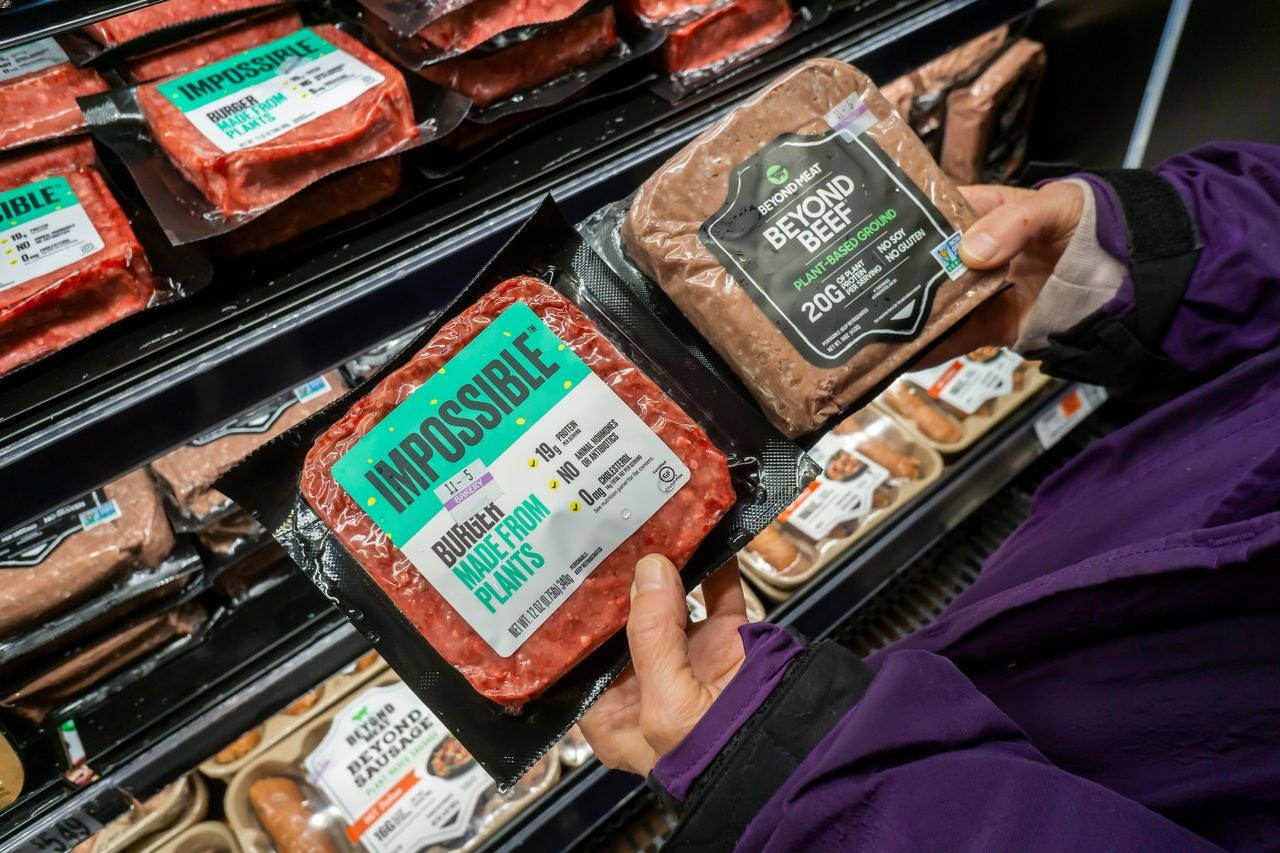Despite challenging periods such as Covid-19 and inflation, plant-based consumer goods have witnessed a rise in demand. According to GlobalData, both dairy and meat substitutes have increased in value with a 2018-2022 CAGR of 5.1% and 11.7%, respectively.
Although these sectors have a much smaller base than the traditional sectors, such as dairy and meat, the plant-based sectors are expected to increase even faster in the coming years. GlobalData forecasts dairy alternatives to increase with a 2022-27 CAGR of 7.3% and meat substitutes by 12.2%. The plant-based product market will become competitive, and innovations to meet various consumer trends will be critical for brands to grow further.
The top consumer trends in plant-based diets are evidenced by the growth of each sector. Those showing the largest growth rates are reflective of innovation, consumer interest and manufacturing demand. Personal Health has been one of the strongest trends across the last decade and describes consumers’ focus on what is good for the body.
Brands need to develop food and drink offerings that are customised or personalised for specific dietary requirements, preferences, health goals and consumption occasions. Leading brands such as Silk from Danone have shown innovations with their plant-based ranges in on-pack nutritional communication. This strategy would entice consumers to try plant-based alternatives.
However, there are factors manufacturers must consider that could inhibit plant-based growth. For example, meat substitutes and dairy alternatives have not always been associated with being easily available and affordable. Consequently, this is being adopted by major players, such as Nestlé and ABP Food and has made meat substitutes more available at lower prices by supermarkets releasing ranges of vegetarian or vegan private label products. This is very important to closely align with the demands of price-sensitive consumers. This is also being actioned in foodservice as brands such as Arla are working with providers such as Starbucks to lower the prices of plant-based dairy alternative ranges.
In the long term, the market for plant-based diets will become increasingly competitive, with many companies that primarily supply meat and dairy companies increasing their meat substitutes and dairy alternative ranges. Subsequently, this has created a range of brands proposing various prices for these products, depending on the ingredients used. Plant-based diets are no longer a phase. They are here to stay. If brands do not effectively invest in the theme, opportunities to gain market share can be lost.





